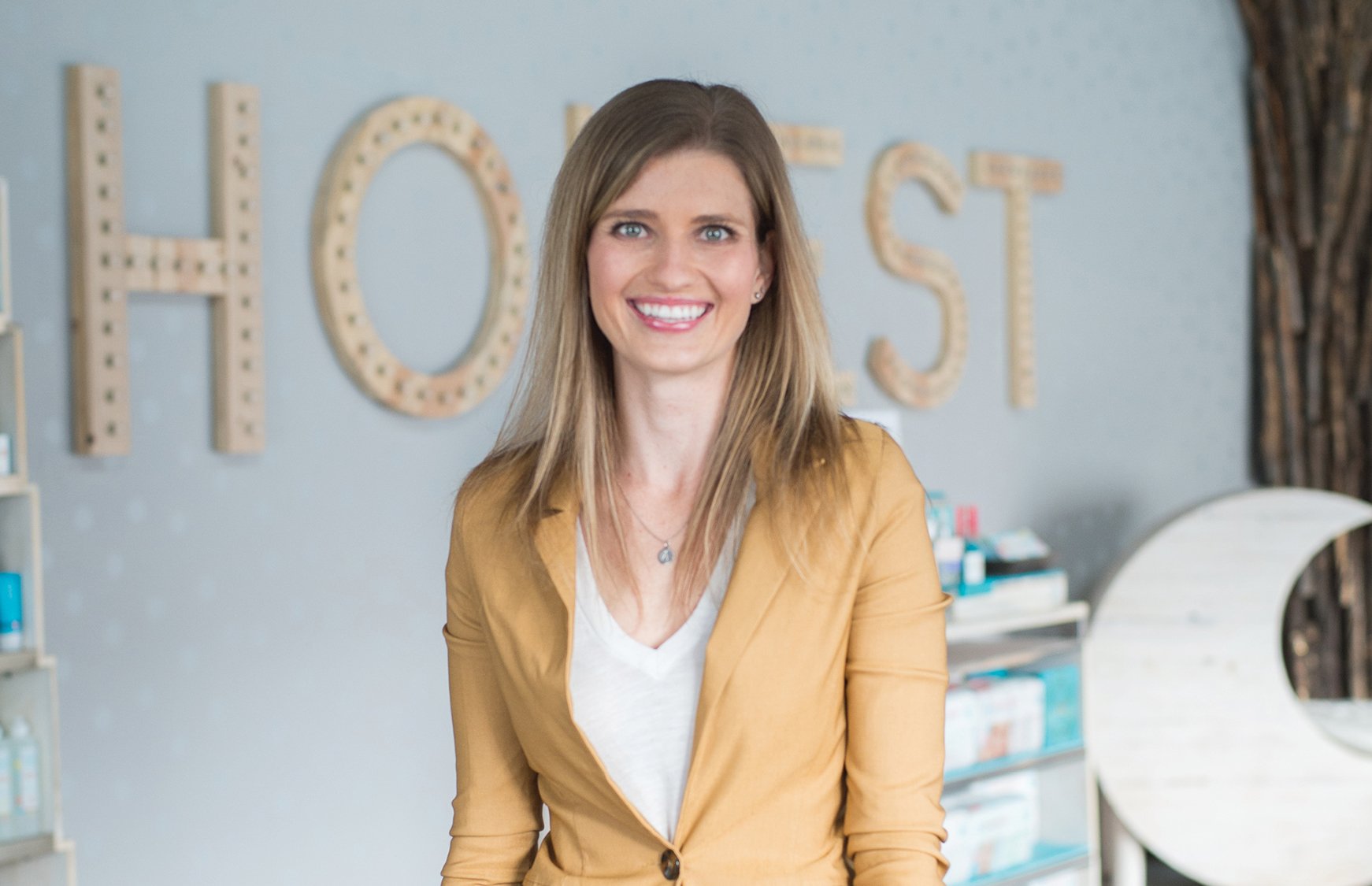Did you know that the majority of products on consumer shelves today are not required to be tested for safety or toxicity, and that you could be taking hazards right into your very own home? Ashley King, 28, is well aware of the fact and works every day to eradicate these threats from public reality.
As Social Goodness Director for The Honest Company, Ashley is actively utilizing her law and business degrees from USC and Loyola Marymount. On any given business day, Ashley works to manage new partnerships with non-profits, encourages employees to volunteer, pinpoints which departments should be more socially responsible and works to figure out the best way to communicate how it all should be done. Since being with The Honest Company from its launch, Ashley also oversees various projects, like dealing with trademark and Internet domain issues—essentially all of the things that come with managing a rapidly expanding business.
Ashley dreams of one day seeing the world’s biggest and most socially irresponsible corporations compelled to change their operations in order to become more harmonious with the environment, their workers and their consumers. Until then, she feels content knowing that her work is helping to make the world a better place for the future.
Her Starting Point
Many people find the transition between college and “real life” a bit daunting. Can you tell us about your journey between the two? What was your first job post-college?
I got a job in marketing at Ed Hardy (remember that tattooed clothing phase?) right when the clothing line was just starting in the back of a print shop. There were less than 10 of us and our job was to convince the world that trucker hats covered in tattoos and rhinestones were the latest trend. I guess we succeeded because the line grew into a multi-million dollar brand seemingly overnight.
This first job taught me to take risks and to truly trust my intuition. In order for me to keep the position (it started as just a summer internship in Los Angeles while I was still an undergrad at Arizona State University), I had to withdraw from classes in Arizona and move to Los Angeles within a week of the summer internship ending. I had no idea whether I would be able to transfer into a different university in Los Angeles and I had no idea whether the company would completely fold in the next few months. However, I had a good feeling about it and I knew that I would regret skipping the opportunity just to play it safe. Luckily, the decision paid off. I was able to finish my undergrad at the University of Southern California and work with Ed Hardy as it continued to grow into a huge company. A few years later, I left Ed Hardy as the Marketing Manager and returned to graduate school to get my law degree and M.B.A. from Loyola Law School and Loyola Marymount University.
If I had not taken that first job, I never would have moved to Los Angeles and I never would have met the two mentors who continually help shape my career path. At the time I made the decision to move for the job, I could not explain why it made sense. I just knew deep down that there was a reason I should do it.
How did you come to work at The Honest Company? What do you love most about the company?
One of my mentors, Brian Lee (founder of Legal Zoom and Shoe Dazzle), was starting The Honest Company at the same time I finished taking the Bar Exam. I knew him through the legal field because I had been a summer associate for the well-known attorney, Robert Shapiro (Brian’s partner in Legal Zoom). Brian knew I did not want to work in a law firm and he offered me the opportunity to take a big career risk—to leave the traditional legal field I had been studying for years to join a start-up e-commerce company in Santa Monica. I would be employee #6 and there was no guarantee whether the company would succeed (seems to be a theme in the companies that I work for!). And again, I took the risk, and it worked out!
What I love the most are my co-workers. I have made some amazing friends, which definitely helps when you are burning that midnight oil, and have learned a lot from my talented colleagues along the way. Everyone is willing to put in extra time and energy to work diligently and make this company a success. Honest employees are truly the heart that keeps the business going.
Why did you pursue a career in corporate responsibility? How does your dual degree in law and business help in your role?
I actually did not set out to work in corporate responsibility. It was never presented as a career possibility in school and so I did not know that jobs in CSR even existed. I just knew that I needed to work for a company that was doing good things, treating its people well and was actively working to take care of the environment. This was what I found in The Honest Company and why I was willing to take that career risk.
My official role in corporate responsibility came together organically during my tenure with Honest. As we grew, our company quickly scaled to a size that needed someone overseeing our give back mission (we call it social goodness) full-time. From the beginning, I had been crafting HR policies, working in business development, managing non-profit partnerships and campaigns, etc. so my familiarity with the company’s mission and relationships made it a pretty seamless transition.
My dual degree in law and business helps me with almost every aspect of my job. There are a lot of legal implications in implementing the non-profit partnerships, cause-marketing campaigns and employee volunteerism and engagement programs that I run on a daily basis. Likewise, it is important to be able to understand how these sort of initiatives—which are often much harder to quantify in terms of return on investment—affect our more traditional business operations. Having a business education makes it possible to build a robust social goodness program that can make a difference in the world while still being fiscally sustainable and supportive of company revenue and growth models.
Her Big Break
Corporate social responsibility (CSR) is a relatively new industry. Can you explain the role CSR plays in business and, specifically, at Honest?
To me, there are essentially two breeds of CSR. One type exists in traditional companies who are now realizing that “business as usual” is not sustainable with modern customers or with the environment. They are being forced to react and implement programs to fix (or offset) all of their past transgressions where profit was the only measure of success. The second type of CSR can be found within a new breed of mission-based businesses. For these companies, making a difference is a proactive step; they follow a triple bottom-line that looks at people, planet and profit as measures of equal importance. Both types are extremely important to get things back on track.
Within Honest, CSR is part of the company’s DNA. Every employee knows that we are trying to make things better and each person works to make that happen in their own way. The company began as a socially minded organization and so there is one simple goal—to continue working to be better and better. We do things because they are the right things to do (albeit sometimes more expensive and more difficult).
Tell us about your daily tasks and responsibilities. How often do you travel? Does your job offer good work/life balance?
Working for a fast-growing brand like The Honest Company means that my daily tasks and responsibilities can vary greatly. Although I have taken on leading our social goodness department, I still manage completely unrelated projects that are a carryover from being on the launch team (i.e. projects from trademark applications and strategy, to Internet domain acquisitions and management). It has been a fun challenge to weave all of these various responsibilities together. However, the most consistent tasks within social goodness include managing new and existing non-profit partners, engaging employees in volunteer programs and events, working across departments to pinpoint areas to be more socially responsible and sculpting internal & external communications around these programs.
Overall, I definitely work a lot, but so do the rest of my co-workers. There is a sense of urgency within the company to get safe products out to families as quickly as possible. Products on store shelves are not required to be tested for safety or toxicity, and it terrifies us to think that people are putting toxic chemicals on their bodies and within their homes without even knowing it. The faster we can grow and change the consumer goods market, the faster we can start improving the health and well-being of families everywhere. Keeping that big picture in mind makes it easier to put in those overtime hours.
One part of your job includes building strategic alliances with other responsible partners/ companies. Can you walk us through this process? How do you identify “responsible” partners?
My approach to creating new strategic alliances can vary depending on whether the partner is a for-profit or non-profit organization. With non-profit partners, I look for organizations that are making a measurable impact in communities and who are efficient with their funds so that the vast majority of revenue or product goes straight into the programs and communities that they are serving. The size or recognizability of an organization is not always important to me—some of the smallest grassroots groups can be responsible for completely changing a certain cause or neighborhood.
When it comes to for-profit partners, my go-to benchmark is to check whether they are a B Corporation. In order to be a B Corp, companies have to pass a 3rd party certification that analyzes every single aspect of their business, from accounting and transparency in management, to workplace values and how they treat employees, as well as their environmental footprint and community involvement. If a company has passed this certification, I immediately know that their values will align with ours. I also look for companies who have built their entire business model around being an all-around good company (a la TOMS and Warby Parker) or who have made a very visible effort to transform their business practices. Once you start connecting with other brands in this sphere, it is amazing how quickly your network can expand by simply asking around for referrals from other like-minded brands.
Having Jessica Alba as one of your bosses can’t hurt. How does having access to celebrity outreach impact your work? Does having brand recognition help?
Jessica is an amazing person to work with. Of course her celebrity helps get attention for the company, but I think it is actually her intuition with products and her sense of style with design that have helped the brand be so well received. She found a way to make “eco” sexy and modern. For the first time, people are actually talking about diapers as “soooo cute.” Likewise, she is one of the main forces within the company making sure that we are always giving back to the community. Her passion to make a difference in the lives of people who need help is one of the main reasons why my job exists. She is really just a mom on a mission to make the world a better place for her little girls.
Her Perspective
What is your favorite part of your job? What is the most challenging?
The most exciting thing about my job is that I can tangibly see the amount of good we are helping create in the world. I can quantify the number of families we have helped and see the smile on someone’s face when they are able to provide the most basic of essentials for their children. Social goodness is an incredibly rewarding job and I am lucky to have stumbled my way into it. I also am really excited by the opportunity to help build Honest’s social goodness department from the ground up. I have gotten to help shape the department from its inception and naming and will continue to be a part of building it into something even greater.
The most challenging part is saying “no.” There are so many organizations who reach out for help and support, but unfortunately Honest is not large enough yet to be able to help everyone who needs it. We are only two years old and do not have the resources or manpower to be able to respond to every need in the way that we would love to be able to. Many times, I am only able to give words of support and encouragement. It can be really hard emotionally to hear some of the stories that are sent to us and not be able to give the people everything that they are asking for. Luckily, the more we grow, the more I can say “Yes!”
If we had the chance to peek at your schedule, what would an average day look like?
It starts with coffee. I am not a morning person, so my morning brew is definitely key to getting things started! The rest of my day is then filled with calls, meetings and emails (oh, so many emails!) to keep the social goodness world within Honest going. My job overlaps with most departments within the company, so I am often rolling around the office to talk with different people about upcoming projects and to brainstorm new giving campaigns. My day usually ends with a long walk with my dog and a glass of wine with my husband. Nothing too crazy!
What skills/education/training do you think are essential to a career in CSR? What other career options are out there for CSR experts?
First and foremost, a passion for making a difference is essential. The career can be an uphill battle, especially if you are working with traditional business executives who might only care about one bottom-line: profit. Proving that something is “the right thing to do” is not always easy when you do not have quantifiable data to prove it. Accordingly, a business background can be helpful to help translate why doing the right thing also is good for growing your business. People-skills are also extremely important because you need to be able to convince colleagues to join your movement and to be CSR champions within their own departments—this is especially true when an emphasis on social responsibility is not part of their official job description.
Luckily, it appears that more and more companies are seeing the value in CSR, so they are hiring professionals or allowing current employees to pursue sustainability initiatives. I think careers in CSR will continue to exist and grow, but I also believe that companies will start integrating responsibility into other traditional job functions. Rewriting the way that we do business (from the top to the bottom) is the only way that companies will be able to continue prospering without devastating the environment and communities. The modern consumer is not happy with the ways of the past and employees are migrating to companies that have a mission-component as part of their basic ways of doing business.
And finally, what do you wake up looking forward to? What’s next for your career?
I am looking forward to the day when the traditional behemoths in industry feel threatened by this new way of business and are forced to do things differently. I hope that “business as a force for good” will become the most common business mind-set and that the companies who destroy the environment, take advantage of their workforce and deceive consumers will be forced to change their ways or go out of business. This is a big dream, but the old ways of doing business simply cannot be allowed to continue.
In the near future, I am excited to keep building Honest’s social goodness programs. As the company continues to grow at an amazing pace, so does the amount of good we are able to send back out into the world. It will be a really rewarding path to grow with Honest. As far as my long-term career, I am open to whatever comes next! As I stated above, I believe that the dots will always connect looking backwards, so I welcome new opportunities as they come. As long as I am doing something I love and working for a company that is transforming the world for the better, I will be content.
You May Also Like
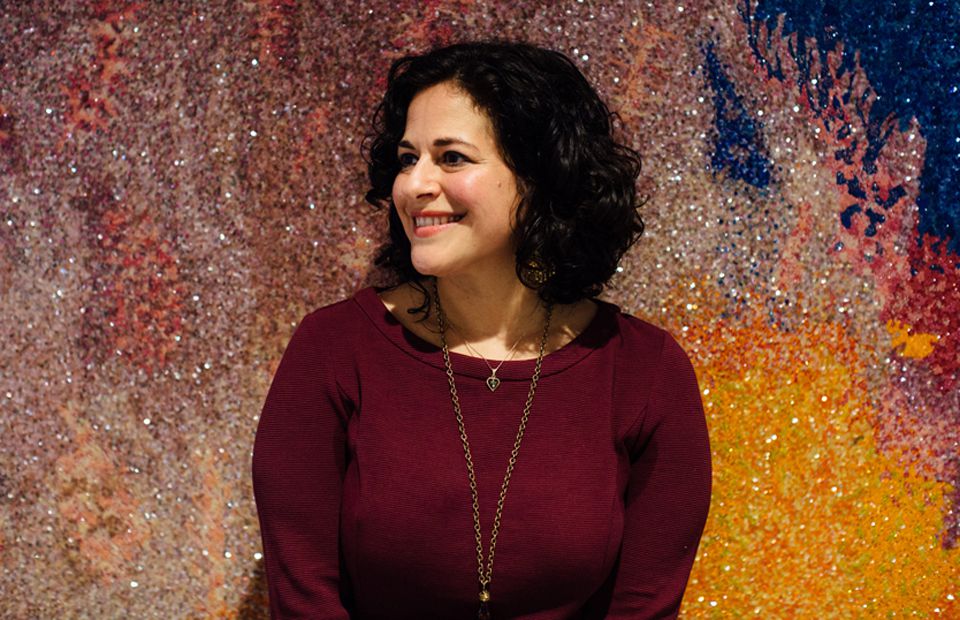
Consumer Goods
Our New Dream Job? Vice President of Social Consciousness & Innovation
"The truth is, having a more responsible supply chain or more responsible business is made up of lots of small actions. And one thing that I really love about my work is that nothing is black and white. It's all gray space."
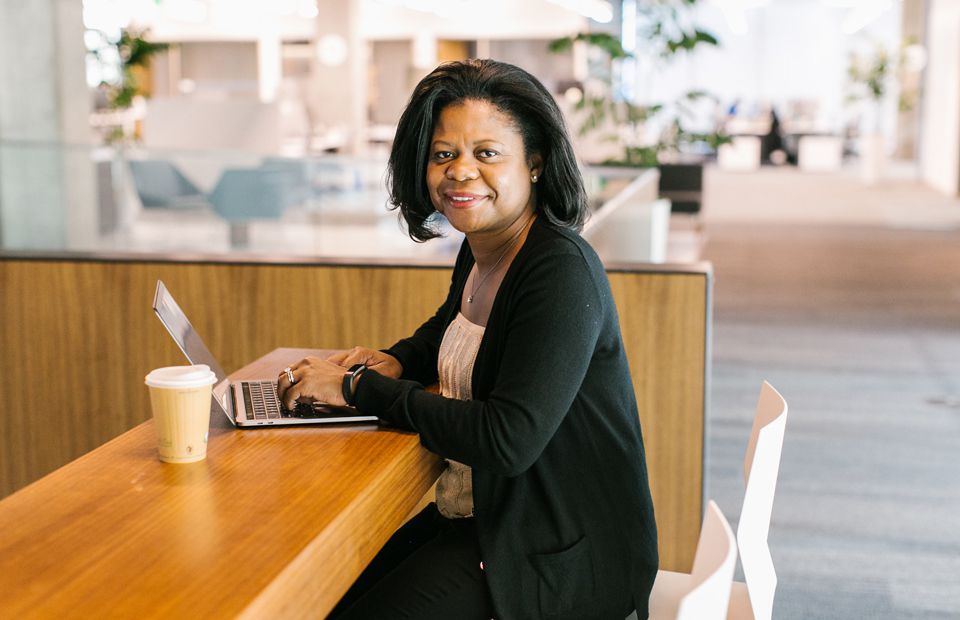
Consumer Services
An Executive at Intuit on How to 'Send the Elevator Back Down'
"What I often tell engineers—especially women engineers—is that it’s good to be excellent, but you’ve got to make sure it’s not a well-guarded secret."
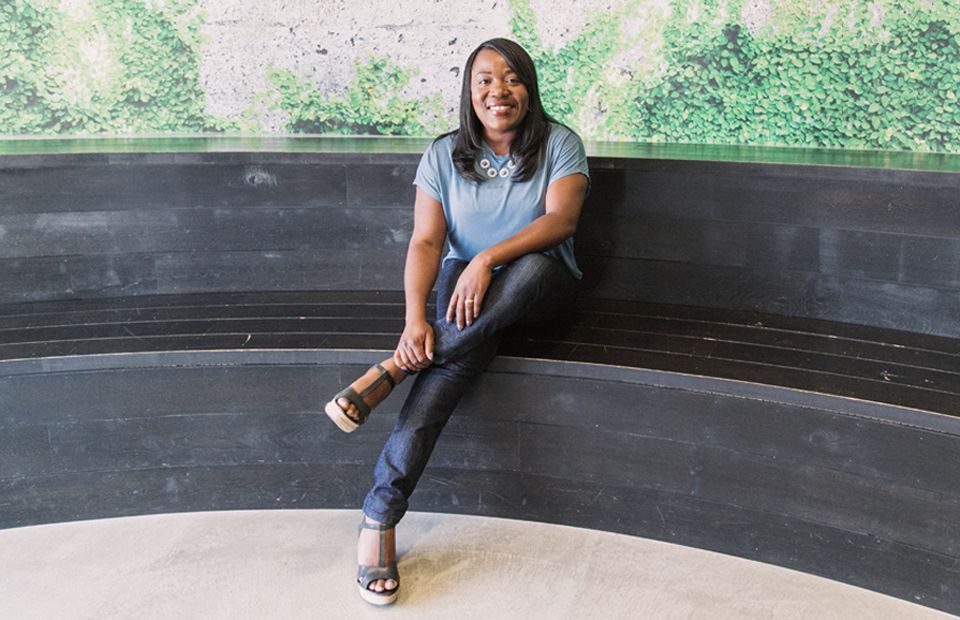
Consumer Services, Technology
A Top Lawyer Talks Leadership, Transparency, and a Music Empire's Goals for Diversity
As Chief Counsel at Pandora, Adelmise Warner has a few thoughts on leaning in.
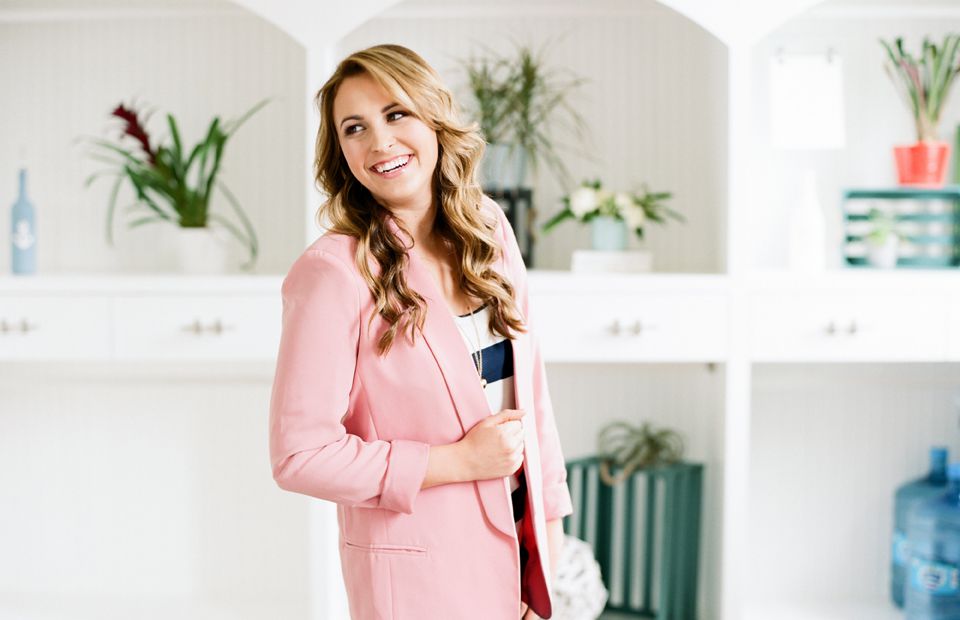
Consumer Goods
Rising Tide Society's Founder on Why Not Everyone's Cut Out for Entrepreneurship
Natalie Franke on creative entrepreneurship and her journey with Rising Tide Society
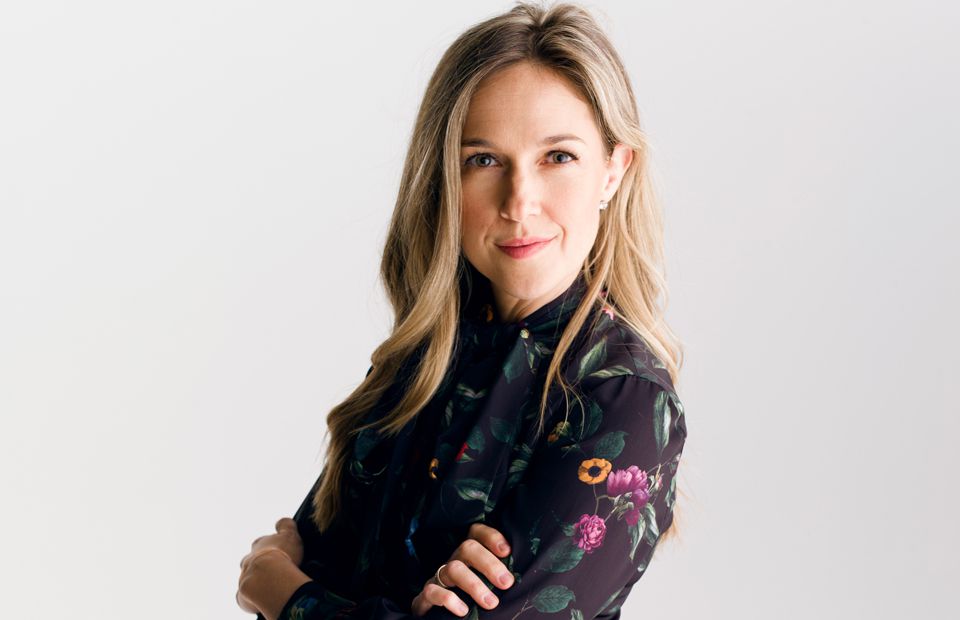
Consumer Services, Technology
Here's How a Female V.P. at a Tech Startup Faces the Gender Gap
Nikki Pechet on writing your own maternity leave policy and taking a job for joy, not money.
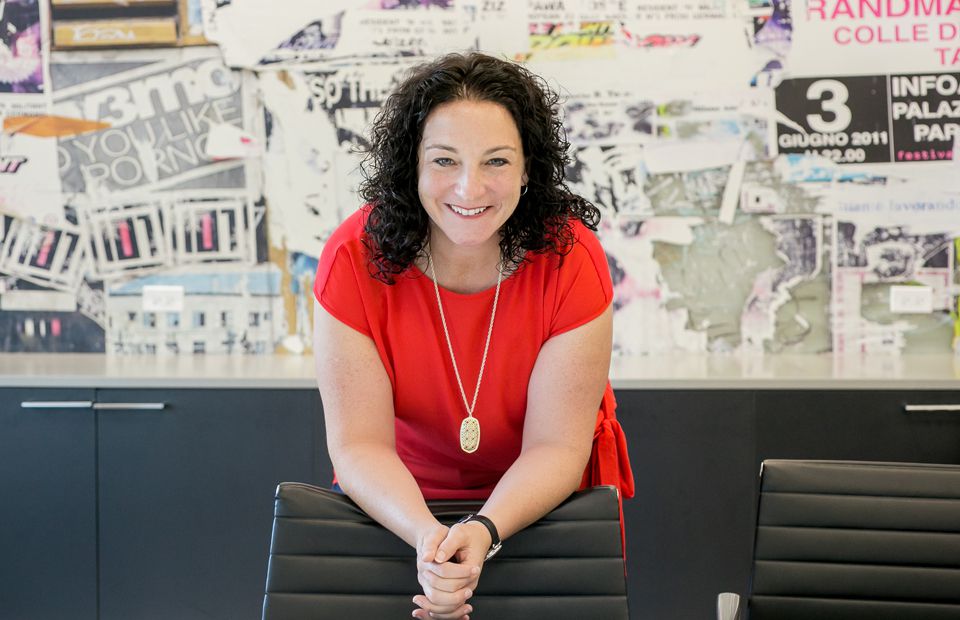
Consumer Goods, Technology
A Sales V.P. on What It's Like to Work at Pandora
Casey Forbes is living an audiophile's dream career.
Get the Best Career Advice Delivered To Your Inbox
Join our newsletter to stay in the loop.
